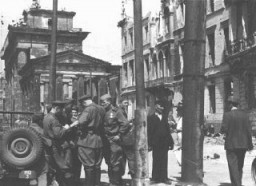
Article
Browse an alphabetical list of articles about the Holocaust and World War II. Learn more about topics such as the Nazi rise to power, how and why the Holocaust happened, life in Nazi camps and ghettos, and the postwar trials.
<< Previous | Displaying results 926-945 of 1089 for "Article" | Next >>
-
The July 20, 1944, Plot to Assassinate Adolf Hitler
ArticleThe July 20, 1944, plot was a failed attempt to assassinate Adolf Hitler. Learn more about the July 20 plot, including some of the motivations of the participants.
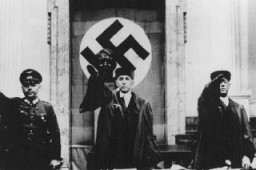
-
The Movement to Boycott the Berlin Olympics of 1936
ArticleSoon after Hitler came to power, debates began outside Germany about taking part in Olympics hosted by the Nazi regime. Learn more about calls to boycott the Games.
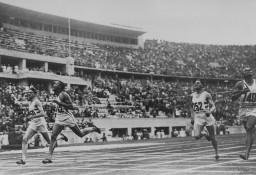
-
The Murder of People with Disabilities
ArticleAt the beginning of WWII, people with mental or physical disabilities were targeted for murder in what the Nazis called the T-4, or "euthanasia," program.
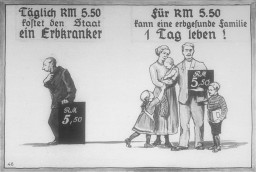
-
The Nazi Olympics Berlin 1936
ArticleThe 1936 Olympics in Berlin under Adolf Hitler's Nazi dictatorship were more than just a worldwide sporting event, they were also a show of Nazi propaganda.
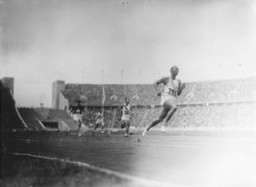
-
The Nazi Olympics Berlin 1936: African American Voices and "Jim Crow" America
ArticleAfrican American athletes, facing racism at home, also debated whether to join or boycott the 1936 Olympic games in Germany, then under a racist dictatorship. Learn more.
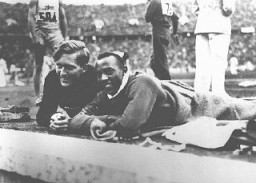
-
The Nazi Olympics Berlin 1936: Inauguration of the Olympic Torch Relay
ArticleThe 1936 Olympics were the first to employ the torch relay. Learn more about this new ritual, Nazi propaganda, and the Olympic Games in Berlin, Germany.
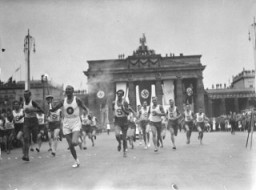
-
The "Night of Broken Glass"
ArticleOn November 9–10, 1938, the Nazi regime coordinated a wave of antisemitic violence in Nazi Germany. This became known as Kristallnacht or the "Night of Broken Glass."
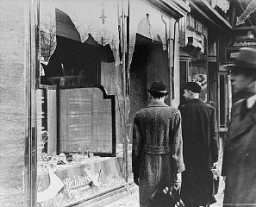
-
The Nuremberg Race Laws
ArticleThe Nazi regime’s Nuremberg Race Laws of September 1935 made Jews legally different from their non-Jewish neighbors. The laws were the foundation for future antisemitic measures .
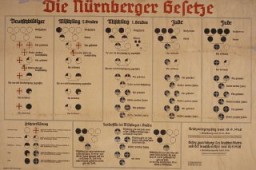
-
The Police in the Weimar Republic
ArticleThe Weimar Republic existed in Germany from 1918-1933. Learn more about German police during that time.
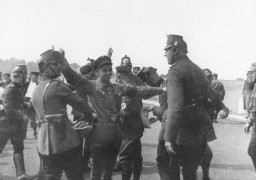
-
The Rescue Mission of Gilbert and Eleanor Kraus
ArticleIn the spring of 1939, Gilbert and Eleanor Kraus rescued 50 Jewish children from Vienna, Austria, by bringing them to the United States. Learn about their mission.
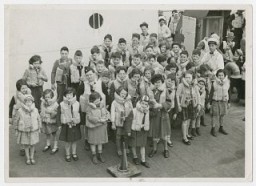
-
The Role of Academics and Teachers
ArticleTo implement their policies, the Nazis had help from individuals across Europe, including professionals in many fields. Learn about the role of academics and teachers.
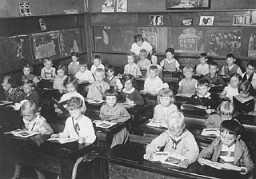
-
The Role of Business Elites
ArticleTo implement their policies, the Nazis had help from individuals across Europe, including professionals in many fields. Learn about the role of business elites.
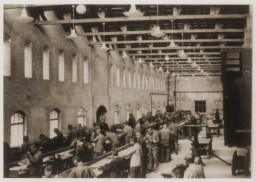
-
The Role of Civil Servants
ArticleTo implement their policies, the Nazis had help from individuals across Europe, including professionals in many fields. Learn about the role of civil servants.
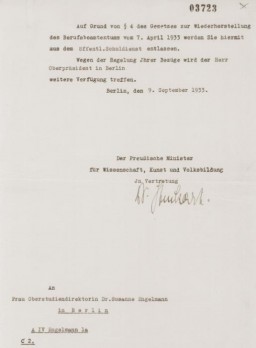
-
The Role of Doctors and Nurses
ArticleTo implement their policies, the Nazis had help from individuals across Europe, including professionals in many fields. Learn about the role of doctors and nurses.
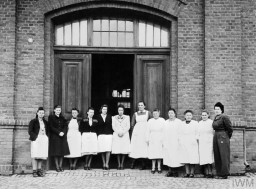
-
The Role of German Clergy and Church Leaders
ArticleTo implement their policies, the Nazis had help from individuals across Europe, including professionals in many fields. Learn about the role of German clergy and church leaders.
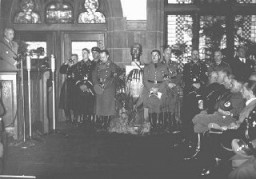
-
The Role of the German Police
ArticleTo implement their policies, the Nazis had help from individuals across Europe, including professionals in many fields. Learn about the role of the German police.
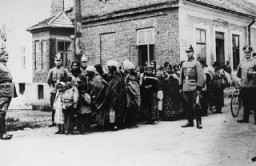
-
The Role of the Military
ArticleTo implement their policies, the Nazis had help from individuals across Europe, including professionals in many fields. Learn about the role of the military.
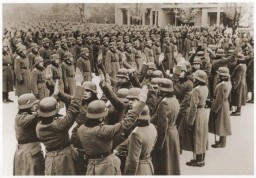
-
The Rwanda Genocide
ArticleFrom April to July 1994, extremist leaders of Rwanda’s Hutu majority directed a genocide against the country’s Tutsi minority. Learn more

-
The Search for Perpetrators
ArticleThousands of Nazi criminals were never arrested. Learn more about the postwar efforts to bring Nazi perpetrators to justice.

-
The Soviet Union and Europe after 1945
ArticleLearn more about the Soviet occupation of Europe before and after the defeat of Nazi Germany and the end of World War II.
